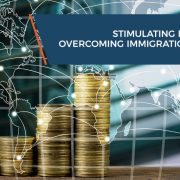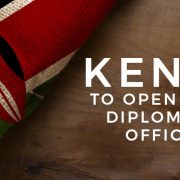Stimulating investment by overcoming immigration challenges
/in Archived, News /by xp-adminShe adds that South Africa needs to prioritise creating a more holistic evaluation process for skilled foreign workers and has to make sure their visa applications run smooth and seamless.
“There are specific immigration and business challenges that exist for foreign groups within South Africa and I believe these challenges are hampering investment into the country. The long turnaround times and costs related to obtaining work visas for foreign nationals has been raised as a key area of concern for international companies looking to grow their footprints within South Africa, an issue that could have many positive consequences for our economy and people,” says Jacobs.
Should foreign workers be forced to surrender their passports?
The costs involved in securing employment visas to work in South Africa is high, particularly in certain visa classes that require the application to be made in the applicant’s home country. The costs of obtaining employment visas is further exasperated by the South African Embassy requiring foreign nationals to surrender their passports for the duration of the processing period.
“When workers are forced to surrender their passports, they are rendered without a passport for the period that the South African High Commission takes to process the application. These applicants are then unable to travel during this period, which can impede their work commitments or personal travel needs,” explains Jacobs.
Visa applicants not only wait long periods for their work visas, but the waiver and appeal application processes that they may need to pursue also regularly lead to prolonged waiting periods.
“When comparing the waiting period as well as the requirements for work visas in South Africa to other countries, ours are considered onerous and burdensome. Besides the long waiting periods, visa applicants become frustrated with inconsistencies encountered when dealing with the various foreign embassies,” says Jacobs.
Inefficient visa applications deter skilled foreigners
Besides impeding foreign investment, these issues also extend to local companies who are looking to hire skilled workers from overseas. South Africa is currently competing with a myriad of other countries to attract and retain critical skills in sectors such as ICT, engineering,skilled trades, executives and medical professions to name a few. Burdensome visa processes could potentially deter skilled workers from taking up a work opportunity in the country.
“When the Department of Home Affairs adjudicate visas for foreign nationals who are applying for critical skills positions in South Africa, they in many cases place too much emphasis on qualifications as opposed to experience even though the Act makes a clear distinction” says Jacobs.
A person with 30 or 40 years’ experience in a profession may be overlooked if they don’t have the related qualification, which leads to local companies losing out on highly knowledgeable people.
Could opening South Africa’s borders lead to job creation?
/in Archived, News /by xp-adminThere are widely held misconceptions around the impact of immigration on the economy. If you listen to politicians, and across the political spectrum from the ANC, DA, EFF and, most recently COPE and ABM, you’d be forgiven for thinking that ‘letting the foreigners in’ can only be a bad thing. They take jobs, right? Wrong.
We’ll get to the figures on that shortly, but first, why is job creation so important, and what makes it happen?
Almost as soon as Cyril Ramaphosa became South Africa’s fifth president, he promised to create a million jobs. His predecessor Jacob Zuma had made similar promises in 2011, suggesting five-million jobs would be created by government over 10 years.
Politicians know full well the limitations of government to directly create jobs, yet undertaking to bolster job growth is a mainstay of politicians’ vocabulary across the political spectrum. Who would argue against it?
In a country where unemployment remains persistently high – 27.2% in the second quarter of 2018 – promising more jobs will certainly strike a popular chord with South African voters. But with the latest year-on-year growth rates suggesting South Africa’s economy expanded by a mere 0.8% since the first quarter of 2017, where are the millions of jobs going to come from?
There is no simple answer to either increasing the employment rate or creating more jobs. Broadly speaking, economic growth is associated with a reduction in the unemployment rate, but this is hardly a rule. An IMF paper from 2016 shows that the relationship between GDP growth and employment varies significantly between economies.
Of course, governments can literally create jobs: they can increase the number of public sector employees. By hiring more firemen, soldiers, teachers, or deputy ministers, a government can create jobs out of thin air that are not dependent on economic growth or any other factors. Up to a point this is a necessary exercise (teachers serve a vital societal function, for example), but it has diminishing utility when those jobs hold no obvious purpose, or when the overall cost of maintaining all of them becomes untenable.
But neither governments nor politicians can create jobs in the broader economy; to think otherwise is fallacy.
Government’s role as a job creator can be that of a facilitator. Through policy choices government can develop and maintain the best possible conditions under which jobs are created and people are hired by other economic actors (such as businesses).
One piece of the equation to create jobs in South Africa could be a determined policy to increase immigration. Yes, increase immigration. The South African government recognises, at least on some level, that there is value in attracting economic migrants to the country. Immigrants can bring valuable skills to the country and can serve to fill gaps in the labour market left by locals.
Evidence suggests immigrants may go one better than filling gaps: rather than “stealing locals’ jobs”, immigrants are in fact potentially creating more jobs. Research conducted in Gauteng found that far from taking jobs from South Africans, more foreign shop owners in Soweto employ locals than local entrepreneurs. It’s worth noting that most of these migrant entrepreneurs would be considered “unskilled”.
A recent study jointly authored by the Organisation for Economic Cooperation and Development (OECD) and the International Labour Organization (ILO) found that immigrants provide a significant boost to developing economies (including South Africa’s). They contribute to the economy as consumers and tax-payers, but also in many instances as job creators and innovators. A UN study also demonstrates social and economic benefits of migration in Africa for both source and destination countries.
The evidence for South Africa is clear and growing: immigrants contribute to economies and create jobs.
However, while research highlights the potential positive contributions to the economy foreign nationals can make, migration policy has historically hindered access across all skill levels and has retained a restrictive quality, where high-skilled migrants are frustrated by red tape and bureaucratic delays, and regional and low-skilled migrants have no legal pathways to conduct work in the country.
Refugees and asylum seekers, while being protected by the progressive Refugees Act, are squeezed by corruption, an anti-asylum seeker bias, and unlawful policies that push applicants into undocumented status. It is a system where genuine refugees face an interminable process to gain recognition, often as long as a decade.
As well as potentially dampening the job creation that can come from immigration, South Africa’s closed-door policies are costing it big. A 2012 report found unlawful detention practices cost the state millions in legal fees, with a 2014 report revealing R503.3-million in pending claims against Immigration Affairs.
The consensus across the board is that South Africa’s current migration policy is not an effective means to harness the positive aspects of migration, a goal specified in the National Development Plan. But in terms of likely future policy directions, there is both good news and bad news.
Positively, the Department of Home Affairs has recognised the need to establish a pragmatic regional migration scheme for the SADC region as outlined in its 2017 White Paper on International Migration.
Negatively, the government continues to focus on securitising immigration. The recent Refugees Amendment Act makes this clear through the introduction of a host of draconian restrictions, including additional bureaucratic process ostensibly aimed at determining if an asylum seeker should be provided with the right to work.
Instead of focusing on processing applicants, and giving them opportunity to contribute to the economy, the legislation actively seeks to squander the productivity of many. The Border Management Authority Bill – dubbed by an opposition MP as “one of the worst pieces of legislation that has come before the House” – would close the borders further still and establish a bureaucratic behemoth under the Department of Home Affairs, a department well-known for its disregard for the rule of law and accountability. Worse still, the White Paper proposes detention facilities for asylum seekers on the country’s borders, a significant move away from the current non-encampment model.
Even highly skilled foreign professionals face difficulties in becoming productive. Estea Fourie, the Manager of the Employment Access Programme at the Scalabrini Centre of Cape Town, notes that many refugees and migrants have valuable experience and qualifications in fields such as healthcare. But to utilise these degrees and qualifications, individuals face a lengthy accreditation process that can take years.
South Africa’s closed-door policy is counter to trends on the continent. According to the Visa Openness Report of 2017, Africa has increasingly liberal visa regimes, especially for Africans travelling within Africa. Last year, Kenya announced visas on arrival for all African travellers, following in the footsteps of Ghana, Rwanda, Mauritius, Nigeria, Benin and the Seychelles. South Africa lags behind, ranking 34 out of 54 countries.
On a continent where the economic benefits of opening borders are becoming an ever more realised narrative, in South Africa, the optics of a pro-immigration stance seem to be politically unappealing. But the evidence clearly suggests that the government should pick economic pragmatism and potential job growth over populism, reverse its regressive immigration policies, and open up its borders.
Source: Daily Maverick
Encourage Youth To Enter Scarce Skills
/in Archived, News /by xp-adminTrading Economics’s May 2018 statistics, pegs South Africa’s unemployment rate for this year’s first quarter at 26.7%, with the number of unemployed increasing by 100 000 to 5.98 million. These numbers are worrying, as this means that the country’s unemployment levels are at their highest in almost 15 years. Of the almost six million unemployed, the country’s youth are the most affected. With an increase of 1.6%, 58% of South Africa’s youth population is now unemployed, states IOL News.
Unfortunately, in these challenging economic conditions, a university degree is not a guarantee for securing employment after graduation. Statistic SA’s fourth-quarter labour survey for 2016 indicated that of the 58% unemployed youth, 7% are graduates.
In response to these statistics, the ANC stated that in order to eliminate poverty and reduce inequality by 2030, more than 30 000 to 40 000 qualified artisans should be produced annually to meet the industry’s labour demand. This mirrors the demand globally for a focus on promoting mid-level skills development to ease youth unemployment.
Artisan vocations are the answer
Another barrier South Africa’s unemployed face is international competition. Due to the local skills shortage, companies are turning towards the global landscape to fill vacant positions.
A 2017 critical skills survey by Xpatweb shows that 75% of South African companies actively seek international talent to fill positions, despite prohibitive visa processes. One of the critical occupations where companies struggle to find the necessary candidates locally, includes skilled artisans.
This shortage of skilled artisans poses an opportunity for youth to secure future employment. Instead of opting for expensive university and university of technology degrees or diplomas, which can result in thousands of rands of debt, vocational schools offer them a better chance at landing a job and building a successful career. The value of apprenticeship training is that learners gain valuable work experience while undergoing their training.
In an interview with RNEWS, Sean Jones, managing director of the Artisan Training Institute (ATI), states that many of the newly qualified artisans who complete their apprenticeships are almost immediately employed. ATI offers quality technical training in South Africa with this 35-year-old institute training around 1 200 to 1 400 learners a year.
“This is very much in line with a trend that we have noticed in industry; which is that quality artisanal qualifications provide fast access to the job market, better remuneration, and promising future career prospects.” He further states that the continued development of quality artisan qualifications can substantially alleviate the youth unemployment in South Africa.
The top 100 job types
For aspiring artisans, there is a useful resource available, published bi-annually by The Department of Higher Education and Training. The National Scarce Skills List is compiled using information from various governmental sources, such as the National Development Plan, the SETA’s Scarce Skills Lists, and the Industrial Policy Action Plan. This National Scarce Skills List provides the public with an overview of critical scarce skills by industry. In this context, a scarce skill is defined as the job type for which employers cannot find suitably qualified or experienced employees.
In the 2016 report, the top hundred scarce skills included artisan vocations such as electrician; millwright; boiler maker; carpenter; fitter and turner; welder; plumber; toolmaker; diesel mechanic; electronics instrument trades worker; air-conditioning and mechanical services plumber; automotive electrician; automotive motor mechanic; and pressure welder.
With the next National Scarce Skills due to be published soon, Jones is of the opinion that the findings will remain very similar, specifically based on industry demand. But he goes even further by providing more detailed insights about the rankings of these scarce skills. “According to ATI’s trend research, the three dominant trades have been motor diesel mechanics, electricians and fitting and turning. Regarding rankings, the motor diesel trade ranked first for five years up until 2015, after which the electrical trade took the first ranking from its second place (in the prior five years).”
In terms of motor diesel trade, the vocation regained the number one ranking in 2018, with electrical trade coming in at a close second, followed by fitting and turning in third place. Another positive development is that training in the millwright trade has steadily increased over the past eight years and similarly, the demand for the instrumentation trade (although there was a slight dip in 2018).
Trading unemployment for in-demand skills
In essence, both these trend reports showcase that overall, skilled tradesmen are highly sought-after in South Africa. It is therefore imperative, to show young people that acquiring a trade is a viable option. StatisHVAtics increasingly prove that they are more often than not taken up into employment faster than university graduates with academic qualifications.
Creating widespread awareness of these opportunities and educating youth about these employment options is therefore, crucial – for the country’s citizens and the country. Jones concludes, “There are many top executives and entrepreneurs who started their careers ‘on the tools’. Working as an artisan can provide great career opportunities, plus skilled artisans are enjoying global mobility too.”
Source: HVACR Online
Kenya to open more diplomatic offices
/in Archived, News /by xp-adminDr Juma told the Saturday Nation that the expansion to west and northern Africa is part of Kenya’s Pan-African drive.
“We have not had the most optimal footprint in Africa. You cannot deepen any relationship if you do not have an imprint.
“Our policy is Pan-African as we believe Kenya is inextricably tied to the destiny of this continent,” Dr Juma said in her office.
EXPORTS
Kenya has diplomatic presence in 20 of the 54 African countries, Europe (14 out of 47), six out of 35 in the Americas, eight out of 48 in Asia and six out of 16 in the Middle East.
In comparison, South Africa has 47 missions in Africa, with Nigeria and Ghana following a close second and third.
The African market accounted for 37.7 per cent of Kenya’s Sh594.12 billion exports last year.
Outside Africa, Nairobi will open a resident mission in Jakarta, Indonesia and consulates in Mumbai (India) and Guangzhou and Shanghai (China).
Dr Juma said the stalemate with South Africa over visa rules is about to come to an end.
VISA
She said her Interior counterpart Fred Matiang’i, under whose ministry the Immigration Department falls, would fly to South Africa to finalise negotiations on visa regulations with the country’s Home Affairs minister Malusi Gigaba.
South Africa recently relaxed its stringent rules, allowing student visas to be given for the period of the study.
Previously, students were required to travel back home every time their documents expired.
In March, Pretoria announced that it would start issuing visas on arrival for travellers from selected countries, including Kenya.
Dr Juma said worries about Kenya’s proximity to Somalia and the integrity of the Kenyan passport and other documents have been addressed by relative peace in the region and the streamlining of the immigration department, including the introduction of the e-passport.
FOREIGNERS
The minister defended Kenya’s decision to open its borders to citizens of African nations.
“We have come to realise that the opening of our borders does not lead to a flood of foreigners into the country as some people feared,” the minister told the Nation.
“We have not seen anything to indicate non-desirable movement to Kenya.”
In his 2017 Jamhuri Day speech, President Uhuru Kenyatta encouraged East Africans, armed with only their identity cards, to “work, do business, own property, farm, and if you wish … marry and settle in Kenya”.
RELATIONS
Ms Juma applauded the improved relationship between Eritrea and Ethiopia after decades of a state of war.
She said Kenya would work to promote business in the Horn of Africa.
In all, the minister said Kenya is taking a lead in international engagements, citing Mr Kenyatta’s invitation to the G7 for two years in a row, the adoption of the Continental Free Trade Agreement by 49 countries, peace and security and in governance, mentioning the March 9 handshake between the President and opposition leader Raila Odinga.
Source: Daily Nation
FIND US
Johannesburg
17 Eaton Avenue,
Bryanston, Johannesburg,
Gauteng, 2191
South Africa
George
55 York Street
Dormehls Drift
George, 6529
South Africa
CONTACT US
Telephone:
South Africa: 011 467 0810
Postal:
PO BOX 35046
Northcliff
2115
IN THE NEWS
- Another Positive Move To Attract More Tourists To SA
- Bringing in the Bomb Squad at Home Affairs
- How Home Affairs’ Immigration Reforms Could Drive SA’s Growth in 2025
- Phindiwe Mbhele on Remote Work Visa: Splendid Cape Town is wooing more and more digital nomads
- Cape Town Shines, and So Does South Africa’s New Critical Skills Visa Overhaul





